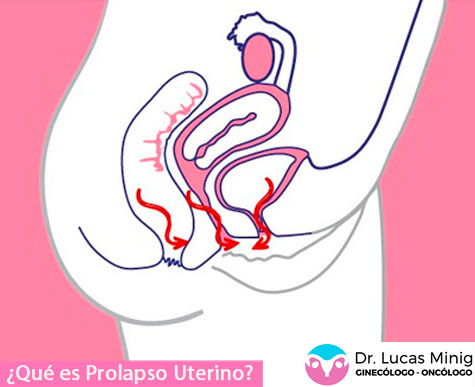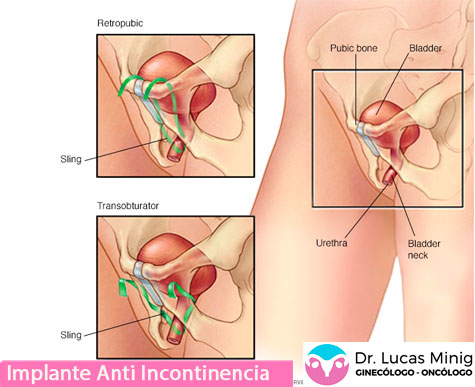
Understanding Stress Urinary Incontinence
What Is Stress Urinary Incontinence?
It is a condition that presents when there is urine leakage from the bladder during physical activity or exertion. Urinary incontinence in women presents predominantly as stress incontinence.
It is defined as the involuntary leakage of urine associated with physical exertion that induces an increase in abdominal pressure (such as coughing, laughing, running, or walking). It happens when the intravesical pressure exceeds the urethral pressure as a consequence of the failure of the urethral resistance mechanism, because of either of two causes:
– Urethral hypermobility, in which the mechanisms for urethral support fail so it descends below its correct anatomical position.
– Intrinsic sphincter failure, in which there is insufficient closure of the urethral walls, causes a decrease in urethral resistance.
Stress urinary incontinence is common in elderly women and is also the most common form of urinary incontinence in women younger than 75 years old, affecting almost half of them.
Request a quick Appointment with the specialist in Genital Prolapse and Stress Urinary Incontinence, Dr. Lucas Minig, an expert Gynecologist Oncologist in Valencia, Spain.
Appointment: Click to Request an AppointmentSolicitar Cita Previa
Contact: +34 679 112 179
Why Do I Suffer From Stress Urinary Incontinence?
Stress incontinence happens when the muscles and other tissues that hold the urethra in place (pelvic floor muscles), and the muscles that control urine voiding weaken or do not work properly.
The bladder expands when filled with urine. Usually, muscles resembling a valve in the urethra (the short tube that voids urine from the body), remain closed while the bladder expands, which prevents urine leakage until you reach the bathroom. But when these muscles weaken, anything that puts pressure on the abdominal or pelvic muscles, ie. sneezing, leaning, lifting objects, or laughing, can put pressure on the bladder and cause urine leakage.
What Tests or Complementary Studies Must be Undertaken To Diagnose Stress Urinary Incontinence?
The healthcare provider will perform a physical examination, which includes:
- A physical examination: this could reveal that the bladder or the urethra are protruding into the vagina.
Complementary studies could include:

What circumstances could elicit stress urinary incontinence?
What Causes the Pelvic Muscles To Weaken?
Pelvic Prolapse happens when the bladder, urethra, or rectum slips into the vagina. Childbirth can cause nerve or tissue damage in the pelvic area. This can lead to pelvic prolapse months or years after delivery.
What Are The Symptoms of Stress Urinary Incontinence?
When you have urinary incontinence, you can experience urinary losses in the following situations:
You may not have urine leakage every time you do these things. But any activity that exerts pressure on the bladder makes it more likely for you to have involuntary urine losses, especially if the bladder is full.
Do you suffer from Urinary Incontinence?
Factors That Contribute To Stress Urinary Incontinence
These factors can worsen stress urinary incontinence:
What Factors Put Me At Risk Of Developing Stress Urinary Incontinence
Some of the factors that increase the risk of developing stress urinary incontinence are the following:
How Is Stress Urinary Incontinence Treated?
Treatment depends on the way the symptoms affect your daily life. We might ask you to register the number of times you urinate day and night and the frequency of urine leakage.
There are four types of treatment for stress urinary incontinence depending on its severity:
Request a Second Medical Opinion
Lifestyle changes
We suggest the following cases of habits to improve the control of urinary incontinence by taking care of your health and daily nutrition.
Drink fewer liquids (if you drink more than 1,5L a day).
Do not resist the urge to urinate. Pee immediately after feeling the need to do so. This can help reduce the amount of urine leakage.
Avoid jumping or running.
Increase fiber intake to avoid constipation because it can worsen urinary incontinence.
Try to stop smoking. This can help reduce cough and bladder irritation. Smoking also increases bladder cancer risk.
Avoid alcohol and caffeinated drinks such as coffee. They can cause the urge to urinate.
Put down the extra weight
Avoid foods and drinks that can cause bladder irritation. These include spicy foods, carbonated drinks, citrus, coffee, and tea.
If you suffer from diabetes, keep your blood sugar levels under control.
Pelvic floor muscles training:
There are different ways of strengthening the pelvic floor muscles.
Biofeedback
This method can help you learn how to identify and control the pelvic floor muscles. Usually, they are guided by midwives or physiotherapists experts in the pelvic floor.
Kegel exercises
They can help keep the muscles around the urethra strong and working well. This can help prevent urine leakage.
Chinese Ben-Wa Balls
Chinese Ben-Wa balls are placed inside the vagina and the woman has to try to compress the pelvic floor muscles to keep the balls in place repetitively.
They can be used 15 minutes at a time, twice a day. Symptom improvement might be noticed in 4-6 weeks.
Incontilase laser
It is a novel treatment used for mild to moderate stress urinary incontinence. It is performed without anesthesia and does not need stitches. To undergo this procedure, patients have to be strictly selected.
Surgeries against Urinary Incontinence
It is recommended in patients with severe urinary incontinence.
Surgery
It is recommended for patients with severe urinary incontinence.
- The incontinence supports the urethra. It is a simple surgery and with a great postoperative recovery. It can be performed under general or locoregional anesthesia.
Frequently Asked Questions about Urinary Incontinence
What circumstances could elicit stress urinary incontinence?
- Coughing
- Sneezing
- Laughing
- Exercise
- Lifting heavy objects
What causes the pelvic muscles to weaken?
- Pregnancy – vaginal labor
- Urethral injury
- Some drugs
- Pelvic surgery
- Pelvic organ prolapse. This happens when the bladder, the urethra, or the rectum descend into the vagina. Labor can injure the nerve or tissues of the pelvic area. This can lead to the development of pelvic organ prolapse months or years after giving birth.
How do I know if I have leaked urine?
Urine leakage is a much more common problem than it seems, we advise you to go to a specialist gynecologist as soon as possible, early detection is key to greater effectiveness. As additional information, it is necessary to analyze 2 aspects: how often urine is lost (once or several times a month, once or several times a week, or every day and/or night) and how much urine is lost (a few drops or a little or more). Provide this information to the gynecologist to initiate the appropriate treatment.
Request an appointment with the gynecologist for a review of urinary incontinence in women.
Medical appointment Valencia.
Online consultation (from any country)
Opinions of patients With Urinary incontinence
Doctor Lucas Minig Gynecologist Oncologist Specialist in Urinary Incontinence in Valencia, Spain
WE WORK FOR YOUR HEALTH

SPECIALIZED TREATMENTS

CONTROL AND DIAGNOSIS

MAXIMUM TECHNOLOGY

Contact the Stress urinary incontinence Specialist
Leave us your data and consultation to offer you personalized medical advice
International Consultation
If you want remote medical care, you can consult
through the following links:
International Appointment
Online Consultation
Whatsapp: + 34 679 112 179






